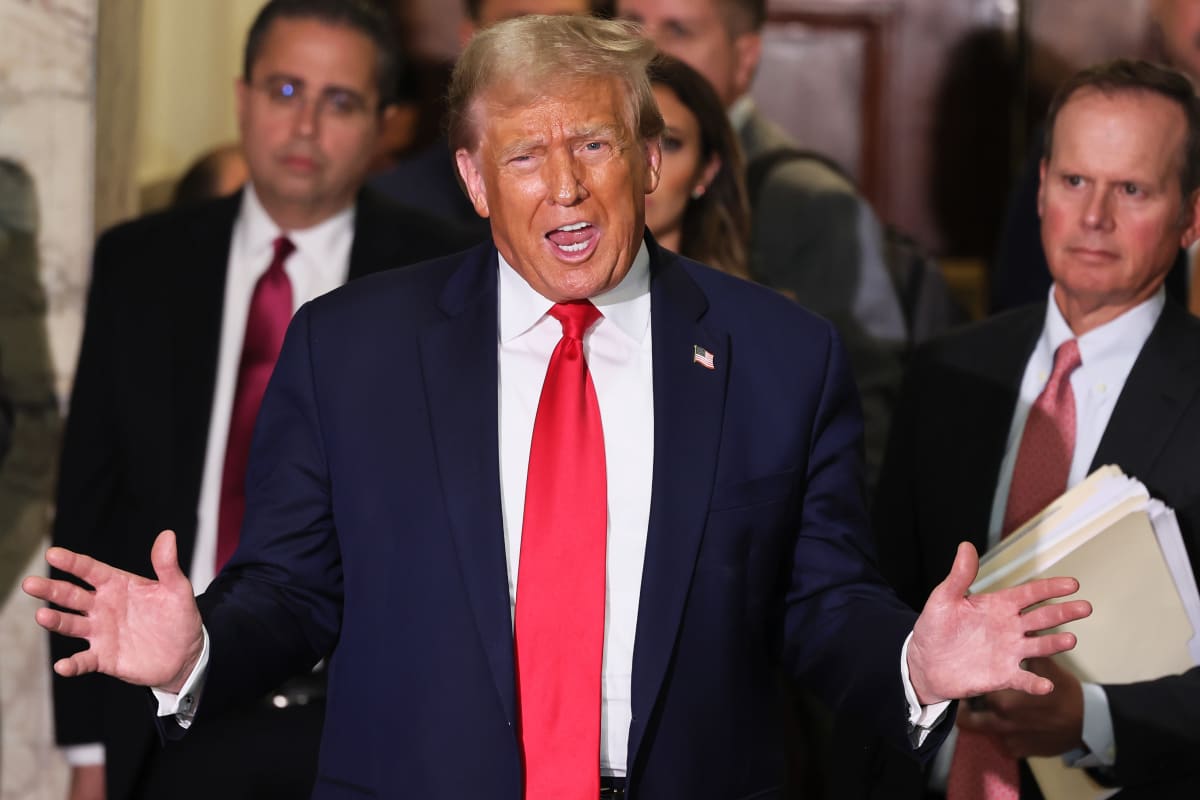Donald Trump recently argued before a Colorado judge that he was not obligated to “support” the Constitution while in office. The bizarre contention was made in a Colorado case brought in the state by Citizens for Responsibility and Ethics in Washington (CREW) seeking to have the former president barred from voting in the state under the 14th Amendment. The 14th Amendment’s Insurrection Clause says those who have “engaged in insurrection” against the United States are prohibited from holding office unless approved by a two-thirds majority of the House and Senate, per Independent .

“The Presidential oath, which the framers of the Fourteenth Amendment surely knew, requires the President to swear to ‘preserve, protect and defend’ the Constitution — not to ‘support’ the Constitution,” said the filing. “Because the framers chose to define the group of people subject to Section Three by an oath to ‘support’ the Constitution of the United States, and not by an oath to ‘preserve, protect and defend’ the Constitution, the framers of the Fourteenth Amendment never intended for it to apply to the President,” the filing continued.
“Because the framers chose to define the group of people subject to Section Three by an oath to ‘support’ the Constitution of the United States, and not by an oath to ‘preserve, protect and defend’ the Constitution, the framers of the Fourteenth Amendment never intended for it to apply to the President.”
“Preserve, protect and defend” is far more explicit than “support.” He broke each one of the pledges on the Bible. Trump tells court he had no duty to ‘support’ the Constitution as president https://t.co/wleaSZvi68 pic.twitter.com/3eJRECWikF
— Walter Williams (@WaltTheStalt) October 13, 2023
Donald Trump is being sued in other states, including Minnesota, on similar grounds of the 14th Amendment in an attempt to remove him from office. Experts argue that the main barrier to these claims is that the 14th Amendment lacks a clear enforcement mechanism, Reuters reported. There isn’t a clear way to enforce Section 3. According to some legal experts, it would need a congressional act to take effect. Others claim that state election authorities must follow it while evaluating candidates for the ballot and may even be ordered to by a court.
To remove Trump from office or prevent him from appearing on the ballot, voters and organizations advocating on their behalf would need to convince secretaries of state in each of the 50 states—many of whom are elected Republicans and Trump supporters—that he is ineligible.
Trump’s lawyers tell court he had no duty to ‘support’ the Constitution as president: “The Presidential oath, which the framers of the 14th Amendment surely knew, requires the President to swear to ‘preserve, protect and defend’ the Constitution — not to ‘support’ the… https://t.co/EOzc6Pb9rg
— Laurie Garrett (@Laurie_Garrett) October 11, 2023
For the operation to be successful, its supporters would have to convince officials in a sufficient number of Republican-leaning states to prevent Trump from running on the ballot, so preventing him from receiving the 270 Electoral College votes required for victory. Republicans would most likely file legal challenges in response to those actions.
Following the 1861-1865 U.S. Civil War, Section 3 was used to disqualify numerous people from office, but it has since been nearly entirely inactive. However, in September 2022, a New Mexico judge removed a county commissioner from office due to the commissioner’s involvement in the Jan. 6 uprising, thanks to the same advocacy group that had filed to keep Trump off the ballot in Colorado, so it does have value.




